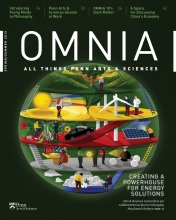Collective Consciousness
Lorena Levano, a graduate student in the College of Liberal & Professional Studies, uses collective social behavior to address sexual harassment and online grooming.

Just as sexual harassment isn’t limited geographically, or to a specific behavior, it also isn’t limited to a given age group, says Lorena Levano, a graduate student in the College of Liberal & Professional Studies in the Master of Behavioral and Decision Sciences program. “When it comes to harassment, we usually think about the workplace and public transportation—and we usually think about adults. But this is a problem that affects kids, too.”
Levano’s paper, “Using a Social Norms Framework to Study Latino Youth Beliefs about Sexual Harassment in High Schools,” which was accepted into the 2019 World Anti-Bullying Forum, seeks to address harassment from a unique angle. “It’s not as simple as bad kids behaving badly. Many times they are pushed by the expectations of others,” she says.
Levano was voted as the Audience Choice winner at the 2019 Grad Ben Talks—an event where Arts & Sciences graduate students present research in TED Talk-fashion. She is conducting her research in Rhode Island schools in partnership with Young Voices, a state-wide organization that empowers youth to become confident civic leaders and advocates in their communities.
Levano says, “Due to the rise of internet use among young people, there are a lot of unusual risks and new forms of violence, like online grooming.”
Levano, who plans to return to her job at the Ministry of Education in Peru when she completes her degree, hopes to apply her research to affect policy by building a theoretical framework to better explain the role of trust in the effectiveness of the influence strategies used in online grooming.



